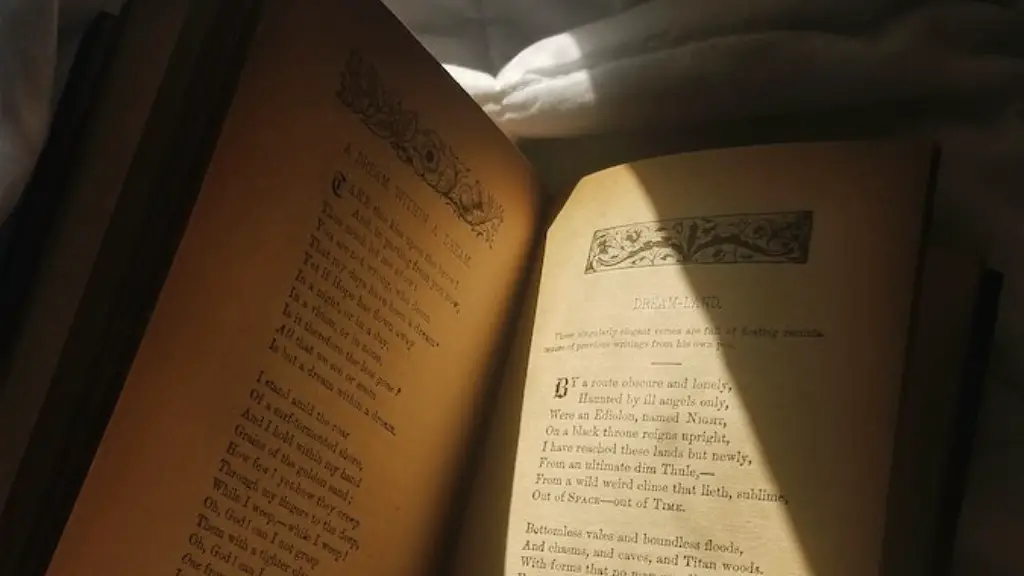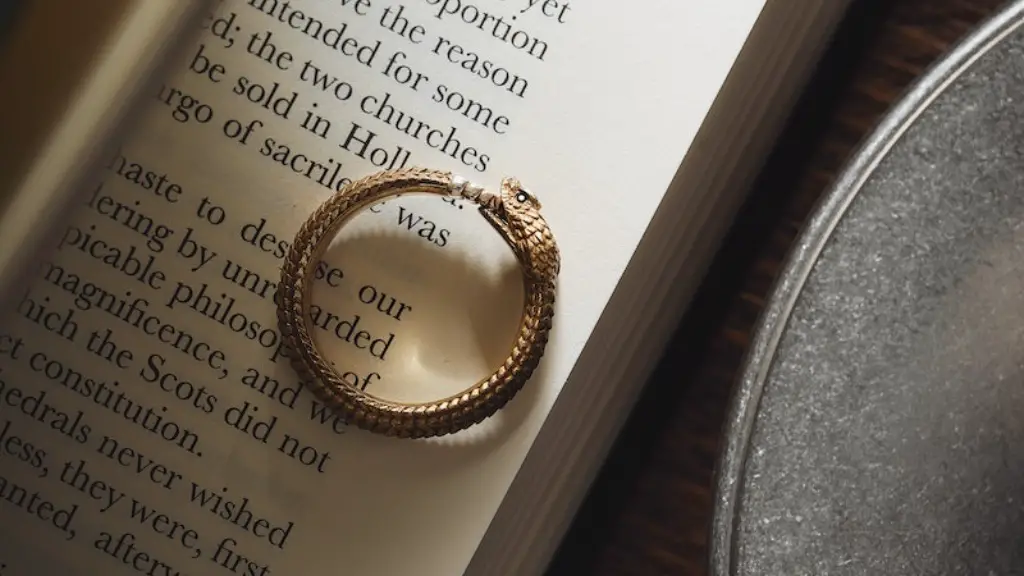Definition of Ode in Poetry
An ode is a poetic form that is characterized by a serious subject matter and a highly elaborate structure. It is commonly divided into three main parts: the strophe, the antistrophe, and the epode. Odes originated in Ancient Greece and were used to celebrate important events or to express admiration, praise, or sorrow. They are typically written in a specific rhyme scheme and meter.
Form and Structure of the Ode
The structure and form of an ode are what sets it apart from other forms of poetry. The strophe is the first part of the ode, which typically introduces the subject matter. The antistrophe follows the strophe, which typically elaborates on the subject and develops it further. The epode concludes the ode, which often contains some kind of conclusion or summary of the whole work. Additionally, odes usually contain a set of patterns that repeat throughout the piece, such as rhyming words, particular word choices, or structural elements.
Themes and Subjects of Odes
While the subject of an ode can be almost any topic, they typically contain themes of admiration and praise. Odes are often written to honor great people, places, or things. They may also be used to express grief or sorrow. Odes are often used to celebrate occasions such as birthdays, weddings, battles, or holidays.
History of the Ode
The earliest examples of odes were written by Ancient Greek poets such as Pindar and Sappho. These odes were typically meant to celebrate important events or to praise great people. In the 17th century, English poets such as John Dryden, Robert Herrick, and Abraham Cowley adopted the form and used it to express admiration and sorrow. Odes have since been adapted and used by numerous writers in different languages and eras.
Examples of Odes in Poetry
There have been countless examples of odes written throughout history. Some of the most famous odes include John Keats’ Ode to a Nightingale and Edmund Spenser’s Ode to Astrophel. William Wordsworth’s Ode: Intimations on Immortality is known as one of the best examples of the form. Odes are still being written today by contemporary poets such as Robert Pinsky and Louise Glück.
Social Impact of Odes in Poetry
Odes have had a significant impact on society throughout history. They have sometimes been used to celebrate important people or places, or to recognize the accomplishments of historical figures. Odes can also serve as a source of comfort and solace in times of sadness and loss. Furthermore, odes are often timeless works of art that can help us to reflect upon our own mortality and the meanings of life.
Critical Analysis of Odes in Poetry
Odes are widely considered to be one of the most beautiful and powerful forms of poetry. The intricate structure and form of an ode give it a distinct elegance that makes it stand out from other forms. Furthermore, the themes of admiration and praise make odes especially lyrical and melodic. As such, odes are often used to communicate deep emotion and to leave a lasting impression on the reader.
Modern Adaptations of Odes in Poetry
The form of the ode has been adapted by many poets for modern use. For example, some poets have incorporated elements of other genres, such as rap, into their odes. Moreover, there is now a wide range of odes that focus on modern subjects, such as technology and economic issues. Additionally, some poets have even written odes that respond to current events and shed light on relevant social issues.
Conclusion
Odes remain an important form of poetry today. They have been used throughout history to express admiration and sorrow, and to memorialize important people, places, and things. Additionally, odes are often lyrical and melodic, and can be adapted to suit modern topics. As such, odes continue to be appreciated for their beauty and for the emotion they can evoke, and will likely remain so for years to come.


